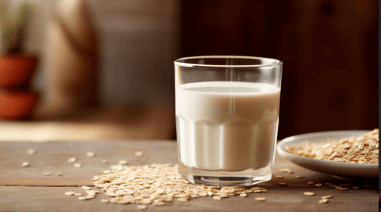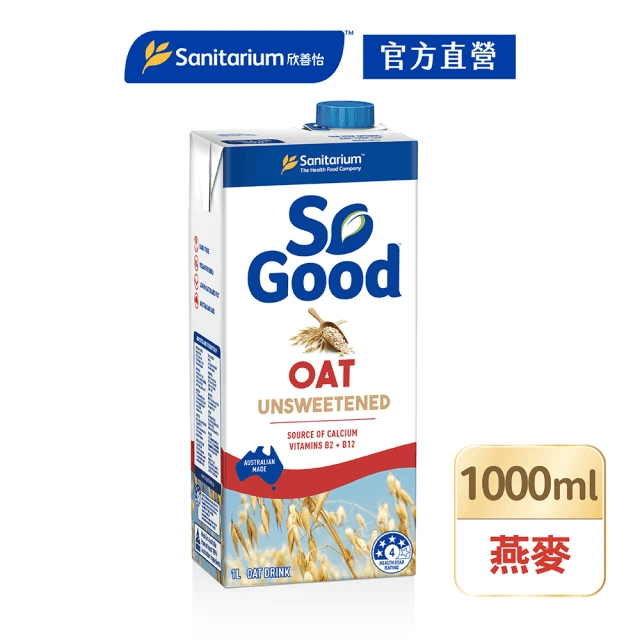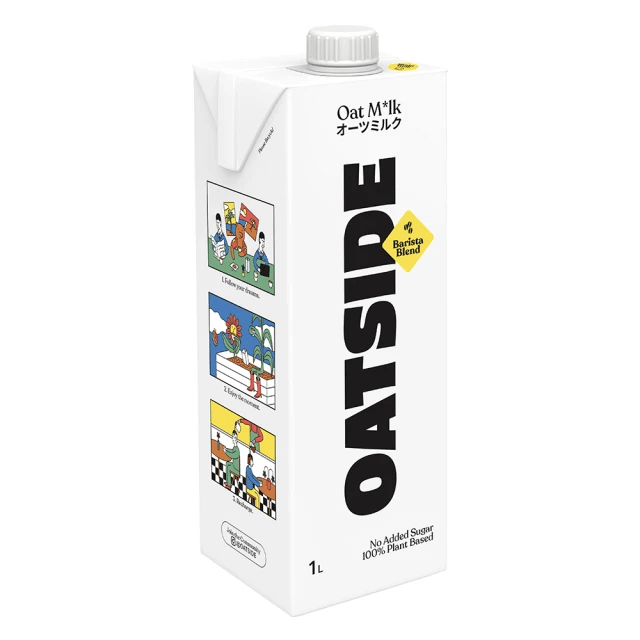5 Benefits of Oat Milk
Oat milk has become a popular alternative to dairy milk in recent years, and for good reason. Not only is it a tasty and creamy option for those who are lactose intolerant or vegan, but it also offers a number of health benefits. In this article, we will discuss five benefits of oat milk.
Nutritional Value
Oat milk is a good source of several important nutrients, including fiber, calcium, and vitamin D. One cup of oat milk contains about 2-4 grams of fiber, which can help to improve digestion and promote feelings of fullness. Oat milk is also fortified with calcium and vitamin D, which are important for bone health.
Lower in Calories and Fat
Compared to dairy milk, oat milk is lower in calories and fat. One cup of oat milk contains about 120 calories and 5 grams of fat, while one cup of whole milk contains about 150 calories and 8 grams of fat. For those who are trying to watch their calorie and fat intake, oat milk can be a good option.
Good for Heart Health
Oat milk contains beta-glucans, a type of soluble fiber that has been shown to help lower cholesterol levels. Studies have found that consuming beta-glucans can help to reduce total cholesterol levels by up to 10%, which can help to lower the risk of heart disease.
Environmentally Friendly
Oat milk is a more environmentally friendly option than dairy milk. Producing dairy milk requires large amounts of water and land, and it also produces significant amounts of greenhouse gases. Oat milk, on the other hand, requires less water and land to produce, and it produces fewer greenhouse gases.
Versatile
Oat milk is a versatile option that can be used in a variety of recipes. It can be used as a substitute for dairy milk in baking, cooking, and coffee drinks. It can also be used as a base for smoothies and other drinks.
Conclusion
Oat milk is a tasty and nutritious alternative to dairy milk that offers a number of health benefits. It is lower in calories and fat than dairy milk, and it contains important nutrients like fiber, calcium, and vitamin D. Oat milk is also good for heart health and is a more environmentally friendly option. With its versatility and health benefits, oat milk is a great option for anyone looking to make a switch from dairy milk.
5 Disadvantages of Oat Milk
Oat milk has become a popular alternative to dairy milk in recent years, thanks to its creamy texture and nutty flavor. However, like any food, oat milk has its downsides. In this article, we will explore five disadvantages of oat milk.
High in Carbohydrates
Oat milk is higher in carbohydrates than other non-dairy milk alternatives, such as almond milk and soy milk. This can be a disadvantage for people who are watching their carbohydrate intake, such as those with diabetes.
According to the USDA, one cup of oat milk contains 19 grams of carbohydrates, compared to 1 gram of carbohydrates in almond milk and 4 grams of carbohydrates in soy milk.
Low in Protein
Oat milk is also lower in protein than cow’s milk and some other non-dairy milk alternatives. This can be a disadvantage for people who are trying to increase their protein intake, such as athletes or bodybuilders.
According to the USDA, one cup of oat milk contains only 3 grams of protein, compared to 8 grams of protein in cow’s milk and 7 grams of protein in soy milk.
Can Contain Additives
Many commercial brands of oat milk contain additives such as gums, oils, and sweeteners to improve the taste and texture of the milk. While these additives are generally recognized as safe by the FDA, some people may prefer to avoid them.
May Contain Gluten
While oats themselves do not contain gluten, they are often grown and processed alongside wheat, barley, and other gluten-containing grains. This can lead to cross-contamination and the presence of gluten in oat products, including oat milk.
For people with celiac disease or gluten sensitivity, this can be a significant disadvantage.
Environmental Concerns
While oat milk is generally considered to be more environmentally friendly than cow’s milk, there are still some concerns about the environmental impact of oat milk production. Oat milk production requires significant amounts of water and energy, and the transportation of oats from farm to processing facility to store can also contribute to greenhouse gas emissions.
Conclusion
Oat milk may not be the perfect milk alternative for everyone, but it can still be a great option for many people. It is important to consider the disadvantages, such as its high carbohydrate content and potential for gluten contamination, but also to weigh these against the benefits of choosing a non-dairy, environmentally friendly milk alternative.
What is Oat Milk & Its Recipe?
Oat milk recommended
Oatly Oat Milk
SO GOOD Oat Milk
OATSIDE Oat Milk
Sources
- USDA FoodData Central: Oat Milk
- Oat Milk: Nutrition, Benefits, and How to Make It
- Oat Milk vs. Almond Milk: Which Is Healthier?
- Is Oat Milk Good for You?
- The Environmental Impact of Oat Milk Production




